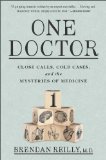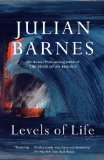Summary | Excerpt | Reading Guide | Reviews | Beyond the book | Read-Alikes | Genres & Themes | Author Bio

The Path to a Better Way of Death
by Katy ButlerOne of John Donne's Holy Sonnets opens with the famous injunction:
Death be not proud,
though some have called thee
Mighty and dreadful,
for thou art not so.
It is interesting to contemplate these words from the 1600s in the light of modern culture and even more so in the light of modern medicine. Today, death may indeed be mighty and dreadful for the many who die in the midst of, or despite, extreme end-of-life medical procedures. And while Donne exhorts the character Death to be humbled with those first four words of his sonnet, after reading Katy Butler's Knocking on Heaven's Door, these lines cause me, instead, to think about how I, and those closest to me, must take proactive steps to make it possible for us to be the proud ones at the time of death.
It's understandable if you are cringing at the thought of reading a whole book on this uncomfortable topic. And yes, I did review another title about death for BookBrowse (Happier Endings) earlier this year, but please don't turn away too soon. If you are moved by the drama of the everyday, if you appreciate a sustained narrative willing to follow its characters to their best and worst places, or if you have ever watched someone who suffers from a fatal illness, or the inevitabilities of aging, lose all quality of life due to the marvels of medicine - and then wondered if medicine always is so marvelous, you will want to give this book a chance.
In Happier Endings, Erica Brown related moving anecdotal stories to season the harsher facts of her manual on dying well. Here, in Knocking on Heaven's Door, Katy Butler engrosses us in one long, aching tale of her parents' fascinating relationship. The story of their real and complex marriage is organized and bordered by the slow death of Butler's father, and the devastation wrought when her mother trades her role of wife for caregiver. When Jeffrey Butler has a stroke at age 79, the author and her mother also enter a new phase of their contentious relationship, a mother needing but rebuffing her daughter's help, and a daughter struggling under the burden of responsibility and the guilt of her frustration in trying to manage families and lives on both coasts.
The book takes a difficult turn after Jeffrey's mental and physical abilities rapidly decline and a seemingly innocent pacemaker insertion in the recent past begins to haunt Butler - and eventually her mother - as they watch Jeffrey lose almost every skill and small pleasure that makes life worth living. Jeffrey's pacemaker could keep him alive long after he wants to be, after the rest of his body shuts down and his mind is irreparably damaged by more strokes. The deep moral and emotional struggle involved in this section is so real, so honest, that Butler succeeds in addressing one of the most delicate topics imaginable: when is the work of healing and saving finished and the time for the work of dying begun?
The journalist in Butler also comes out full and strong as she uncovers just what she and her mother are up against: sacred precedents of U.S. medicine, convoluted and illogical insurance and Medicare policies, an appalling lack of information about end-of-life alternative care options, and the uniquely fragile mental state of a full time spouse caregiver. Knocking on Heaven's Door is comprised of seven parts. As a fascinating (albeit sad) comparison, part six deals with Butler's mother's death. Unlike her husband, she chooses to die on her own terms, and in the end, Butler seems to find some catharsis in studying and sharing the very different ways her parents died and in bearing witness to her mother's final triumph in choosing to die the way she wanted to.
Knocking on Heaven's Door can be read as a warning, an exposé, a love story or a domestic drama - it is all of these. It is a very important work, a literary case study in the modern American way of death.
![]() This review was originally published in The BookBrowse Review in October 2013, and has been updated for the
July 2014 edition.
Click here to go to this issue.
This review was originally published in The BookBrowse Review in October 2013, and has been updated for the
July 2014 edition.
Click here to go to this issue.

If you liked Knocking on Heaven's Door, try these:

by Brendan Reilly
Published 2014
An epic story told by a unique voice in American medicine, One Doctor describes life-changing experiences in the career of a distinguished physician.

by Julian Barnes
Published 2014
Julian Barnes's new book is about ballooning, photography, love and grief; about putting two things, and two people, together, and about tearing them apart.
Your guide toexceptional books
BookBrowse seeks out and recommends the best in contemporary fiction and nonfiction—books that not only engage and entertain but also deepen our understanding of ourselves and the world around us.